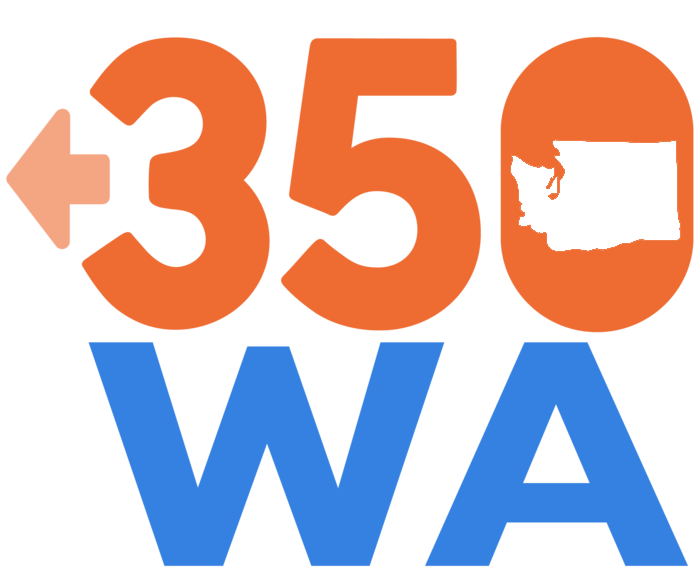Civic Action Team
2020 Legislative Recap
The coronavirus pandemic has upended our lives. Activists are reimagining their next steps on every climate fight while pivoting to support the local assistance efforts that are springing up in communities everywhere. At the same time, the pandemic exposes the weaknesses of our current system, and the urgent need for a federal Green New Deal.
Remember the legislative session?
It just ended, but it already feels like it was ages ago that 350 WA’s Civic Action Team stepped up and worked hard for eight weeks. Over 165 volunteers from 29 districts across the state made nearly 6,000 legislative contacts. No petitions, no form letters -- only personal emails, phone calls and comments. That’s a strong ground game, folks! Participants should feel proud. (And if you didn’t participate but want to join us for next year’s session, sign up here.)
Because it was a short session we knew that 2020 would be less consequential than 2019 in terms of policy. But because we’re in a climate emergency, we had hoped the session would be more impactful than it actually was. Here’s our breakdown.
One big win
The most significant victory was Climate Pollution Limits. It sets new science-based greenhouse gas reduction targets and supports natural sequestration as a mitigation method. But as with the earlier targets, these are non-binding. And our collective failure to meet the earlier targets means there’s a lot of hard work ahead.
Two big losses
Vehicle emissions are 40% of our state’s greenhouse gasses, but once again a handful of centrist Senate Democrats brought the Clean Fuels Standard to a standstill. This despite pledges by colleagues in both chambers to withhold support for next year’s transportation spending unless a clean fuels standard is included. That fight will resume next session.
An even more impactful bill, Greenhouse Gases, would have subjected indirect emissions to regulation under the state’s Clean Air Rule. It also failed to advance, even though provisions delaying local climate action were added to get votes. It will be back next year, and those piecemeal compromises will be challenged.
A host of smaller steps forward
Short sessions are traditionally supplemental, tinkering around the edges. It’s notable that these successful bills were first introduced in 2019: Clean Car Standards brings more electric vehicles to state showrooms; Sustainable Farms and Fields, establishes a grant program for carbon-sequestering farming practices; Commercial Property Assessed Clean Energy creates a financing mechanism for energy efficiency retrofits of large commercial buildings; Plastic Bags prohibits single use plastic carry-out bags; and Accessory Dwelling Units allows low-impact density among detached homes.
Two exceptions, introduced and passed this year, were Natural Gas Transmission, incentivizing gas utilities to find and fix leaks; and Community Solar, expanding equitable access to solar power.
The bones of next session
Those modest successes stand in contrast to significant ideas that did not move forward.
Two bills attempting to write environmental justice and a response to climate change into foundational state policy, Net Ecological Gain and Transportation For All, did not advance past a single hearing. In classic fashion, each received study money in the budget.
Buy Clean, Buy Fair, which sought to establish standards for decarbonizing the building sector, did not advance. Electrification of Vehicles, setting 2030 as the date for all new vehicles to be electric, was given an introductory hearing as promised, but nothing more. Both will be back next session.
A grassroots bill out of left field, Declaring a Climate Emergency, giving the Governor the ability to take climate actions subject to the legislature’s approval, succeeded in getting a hearing, and was publicized to many legislators in the House, but did not advance.
Business as usual has been turned upside down -- for now
Like any legislature, ours works slowly, developing new ideas over multiple sessions. But that speed isn’t suited to the current climate emergency where deep structural changes are needed. And what can be accomplished in a pandemic environment? Will next year’s legislature be virtual?
By next January, we’ll know more. Clean Fuels, the fix to the Clean Air Rule, the discussion over sunsetting internal combustion engines, decarbonizing the building sector, and very likely a controversial cap and trade plan supported by British Petroleum can all be expected to be on the table.
Join us
To see the final status of the 32 bills tracked by the Civic Action Team, visit our summary, The Passed and the Failed. To dive into the weeds of an even larger list of climate-related bills and how they fared, check out the invaluable Climate at the Legislature.
To join us for next year’s session, sign up here.
– the 350 WA Civic Action Team volunteers, David, Katherine, and Selden
